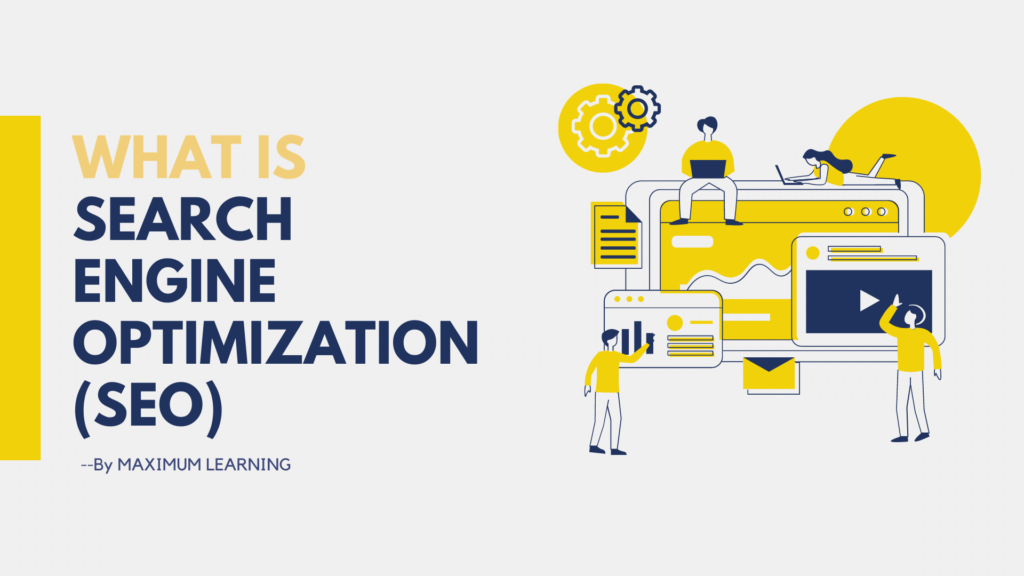In the contemporary realm of interconnected digital platforms, businesses are operating within a dynamic and constantly shifting landscape where the delivery of customized and tailored customer experiences stands as the pinnacle of success. Enter AI-powered personalization—an innovative and groundbreaking methodology that is fundamentally altering the landscape of marketing strategies. This approach marks a significant shift in how brands engage and connect with their audience, elevating the customer journey to new heights. The purpose of this blog is to delve into the profound possibilities that AI offers in sculpting flawless and personalized customer experiences, ultimately reshaping the entire marketing terrain as we know it.
Introduction to AI-Powered Personalization
AI-powered personalization signifies a transformative leap within the marketing domain, revolutionizing how brands engage with their audience. It harnesses the capabilities of artificial intelligence and machine learning algorithms to meticulously tailor and deliver individualized experiences to customers. Unlike conventional and static methods, AI-driven personalization stands out by its ability to dynamically customize content, relying on intricate insights derived from user behaviors, preferences, and demographic information. This cutting-edge approach ensures that each interaction with a brand is uniquely crafted, resonating more deeply with each individual customer by addressing their specific needs and interests.
The Role of AI in Marketing
AI plays a pivotal role in reshaping marketing strategies, particularly through the lens of personalized experiences. Its robust algorithms have the capacity to swiftly process vast volumes of real-time data, allowing businesses to extract invaluable insights into customer behaviors, preferences, and purchasing trends. Armed with these profound insights, brands can navigate the marketing landscape with precision, delivering hyper-personalized interactions tailored to individual preferences. This capability ensures that brands offer relevant and timely content, accurately meeting the needs of their audience, thus enhancing engagement and fostering deeper connections between the brand and its customers.
Benefits of AI-Powered Personalization
AI-powered personalization presents a multitude of advantages that significantly impact customer engagement and brand success. Foremost, it elevates customer satisfaction by delivering content specifically tailored to individual preferences and needs. This tailored approach ensures that customers receive relevant information, products, or services, thereby enhancing their overall experience with the brand.
Moreover, AI-driven personalization contributes to increased conversion rates by offering personalized recommendations. By leveraging data analytics and machine learning algorithms, businesses can accurately predict consumer preferences, effectively guiding customers toward products or services that align with their interests. This precision in recommendation not only facilitates smoother purchasing decisions but also boosts sales.
Furthermore, this personalized approach fosters long-term brand loyalty. When customers consistently encounter personalized and relevant content that resonates with their needs and preferences, they are more inclined to establish a deeper connection with the brand. Over time, this leads to increased trust, loyalty, and advocacy, as customers perceive the brand as genuinely understanding and catering to their individual requirements.
Understanding Customer Behavior
AI’s effectiveness in predicting customer behavior stems from its capability to analyze vast amounts of data, both historical and real-time, with remarkable precision. Through machine learning algorithms, AI can discern intricate patterns and correlations within this data, revealing insights into customer behavior that might otherwise go unnoticed.
By delving into historical data, AI identifies trends, preferences, and past interactions, providing a comprehensive understanding of how customers have engaged with a brand previously. Simultaneously, in real-time, AI processes ongoing interactions, such as website browsing behavior, purchase history, or social media engagements, continuously updating its understanding of customer preferences and intent.
This robust analysis enables businesses to anticipate customer needs and preferences accurately. For instance, AI might recognize patterns indicating when a customer is likely to make a purchase based on their browsing history, time spent on specific product pages, or responses to past promotions. Consequently, brands can proactively present tailored offers or content, providing a more personalized experience that aligns with each customer’s individual preferences and behaviors.
In essence, AI’s ability to comprehend and predict customer behavior empowers brands to be proactive rather than reactive in their approach, creating experiences that are more attuned to each customer’s expectations and significantly enhancing overall satisfaction.
Implementing AI in Marketing Strategies
Implementing AI in marketing strategies involves leveraging a plethora of sophisticated tools and platforms tailored to meet diverse business needs. These AI-driven solutions are instrumental in deploying highly effective personalization strategies across multiple customer touchpoints, including websites, email campaigns, social media interactions, and tailored product recommendations.
For instance, AI-powered recommendation engines analyze user behavior on e-commerce platforms, examining past purchases, viewed items, and browsing history to suggest personalized product recommendations. Similarly, in email marketing, AI algorithms analyze subscriber data to craft personalized and relevant content for each recipient, increasing the likelihood of engagement and conversions.
Real-world success stories highlight the tangible impact of AI in driving revenue growth and fostering robust customer engagement. Brands across various industries have witnessed remarkable outcomes by implementing AI-powered marketing strategies.
These success stories showcase how AI technologies can effectively anticipate customer preferences, personalize experiences, and optimize marketing efforts, leading to increased customer satisfaction, higher conversion rates, and ultimately, enhanced business performance.
Overcoming Challenges
The implementation of AI-powered personalization encounters several challenges that require strategic handling. Data privacy stands as a paramount concern, requiring businesses to safeguard customer information meticulously. With the gathering and processing of vast amounts of data, maintaining strict compliance with privacy regulations like GDPR (General Data Protection Regulation) or CCPA (California Consumer Privacy Act) is imperative. It involves transparently communicating data usage practices to customers and implementing robust security measures to protect sensitive information.
Ethical considerations in AI usage also demand attention. Businesses must ensure that AI algorithms are ethically designed and deployed, avoiding biases or discriminatory outcomes. Addressing algorithmic bias involves regularly auditing and refining AI models to minimize prejudices that may unintentionally influence decision-making processes.
Moreover, another challenge involves ensuring AI-driven personalization aligns with ethical standards and doesn’t compromise user trust. Transparency in how AI is used and the purposes for which customer data is employed is vital. Earning and maintaining customer trust is pivotal, and brands must consistently demonstrate their commitment to ethical AI practices.
Successfully overcoming these challenges necessitates a multi-faceted approach that integrates robust data governance, ongoing ethical assessments of AI algorithms, and transparent communication with customers regarding data usage policies. By actively addressing these challenges, businesses can build stronger relationships with customers, fostering trust and loyalty while leveraging the full potential of AI-powered personalization.
AI Ethics and Customer Privacy
In the realm of AI-powered personalization, upholding customer privacy is non-negotiable. It begins with a commitment to transparency regarding data collection, usage, and storage. Brands need to clearly communicate their data practices, ensuring customers are fully aware of how their information is gathered, processed, and utilized. This transparency fosters a sense of trust and empowers customers to make informed choices about sharing their data.
Stringent privacy policies serve as the cornerstone of ethical AI practices. These policies should outline the purpose of data collection, the types of data collected, and the security measures in place to safeguard sensitive information. Compliance with data protection regulations, such as GDPR or CCPA, is essential to ensure that customer privacy rights are respected and upheld.
Moreover, prioritizing ethical AI practices involves continuous monitoring and assessment of algorithms to detect and mitigate biases. Ethical considerations dictate that AI algorithms should not perpetuate or amplify existing biases, especially concerning sensitive attributes like race, gender, or age. Regular audits and adjustments to algorithms are necessary to minimize biases and ensure fair and unbiased outcomes.
By prioritizing these ethical principles, businesses can build and strengthen trust with their customer base. Respecting customer privacy, adhering to transparent data practices, and deploying AI in an ethical manner not only fosters credibility but also establishes a foundation of trust that is vital for long-term customer relationships.
Case Studies
In AI-powered personalization, real-life case studies exemplify the practical advantages of implementing such strategies. These cases show how businesses successfully applied AI to boost sales, engage customers, and improve satisfaction. For instance, an e-commerce platform increased sales by offering tailored product suggestions. Similarly, a media streaming service reduced churn rates by suggesting personalized content. Moreover, a bank improved customer service using AI-powered chatbots. These cases highlight how AI-driven personalization can transform businesses by enhancing customer experiences and fostering loyalty.
Future Trends and Predictions
The horizon for AI-powered personalization holds exciting prospects. Emerging trends such as predictive analytics, AI chatbots, and voice-activated interactions are set to redefine and elevate customer experiences. Predictive analytics will enable businesses to anticipate customer needs more accurately, offering tailored solutions beforehand. AI-driven chatbots will continue to evolve, providing instant and personalized customer support. Voice-powered interactions are poised to become more intuitive, facilitating seamless and natural communication between brands and consumers. For businesses aspiring to remain competitive, staying abreast of these burgeoning trends will be instrumental in adapting and innovating their personalization strategies for the future.
In conclusion, AI-powered personalization heralds a new era in marketing. Its ability to create seamless and personalized experiences has become integral to achieving marketing success. By embracing AI-driven strategies, businesses can forge deeper connections with their audience, drive brand loyalty, and unlock unparalleled growth opportunities in the competitive digital landscape. The journey to harness the transformative power of AI in marketing has only just begun, and businesses that embrace it will lead the way in shaping the future of customer experiences.




